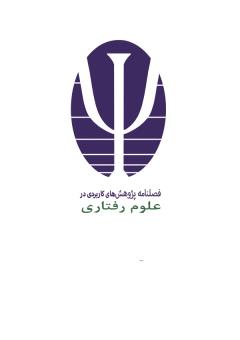-
-
List of Articles
-
Open Access Article
1 - Predicting academic vitality based on spiritual intelligence and self-compassion in students
Aqdas beyad Mohammad Ghamari -
Open Access Article
2 - Effectiveness of Language Skills Promotion Package Based on Cognitive Rehabilitation on Cognitive Performance of Children with Specific Language Impairment
پرستو شیرزادی Salar Faramarzi Samira Vakili Mohammad Parsa Azizi -
Open Access Article
3 - The effectiveness of vanguard parenting on the external and internal problems of primary school students
Neda Malekpour محمدرضا عابدی Siamak Samani -
Open Access Article
4 - The Role of Childhood Trauma Dimensions in Predicting Components of Students' Emotional Intelligence
Ameneh Bakhshizadeh Hossein Ebrahimi Moghaddam Malek Mirahashemi -
Open Access Article
5 - The effectiveness of dialectical behavior therapy on social cognition and adaptive behaviors among students with self-harm
ابوالفضل کرمی Azar Kiamarsi Leila Moghtader Mohammad Kazemi -
Open Access Article
6 - Effectiveness of Affective-Reconstructive Couple Therapy on Emotional Divorce and Interpersonal Emotion Regulation
Faezeh Mahdavi Jafari Abbas Rahmati
-
The rights to this website are owned by the Raimag Press Management System.
Copyright © 2021-2025







